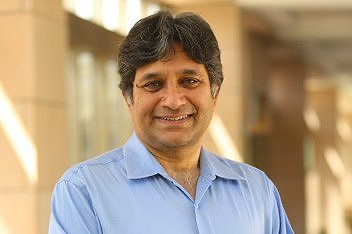Founder & Professor of Organisational Behavior
Dr. Ram Nidumolu
Welcome to Beingfulness.
For the last few years, I have been a professor of organizational behavior at the Indian School of Business (ISB). I have 25+ years of experience in conducting leadership programs for executives in important areas of management such as strategic leadership, digital transformation, and business model innovation and strategy.
Previously, I was also the MD of the Academy for Innovation and Management, a Bengaluru-based company that provided digital transformation consulting services to dozens of leading Indian companies, including Nestle India, Diageo India, PepsiCo India, Sonata Software, Godrej Consumer Products, and others. I was also previously the CEO of California-based Innovastrat, a strategy consulting company that provided advisory services on the next practices of business to Fortune 500 companies. During this time, I had consulted with and advised C-level executives at leading companies such as Harley-Davidson, Alcoa, FedEx, Clorox, Intuit, and many others in the US.
Some of my work has appeared in the Harvard Business Review, the Stanford Social Innovation Review and at leading international industry consortia. I was previously the founder and CEO of a VC-funded software company in Silicon Valley that provided CRM/business intelligence solutions to companies. I was also a professor at the business schools at Santa Clara University and the University of Arizona for several years. I received my Ph.D. in Management at the Anderson Business School at UCLA, his PGDM from IIM Calcutta, and my BE (ECE) from the Indian Institute of Science, Bangalore.
My Journey to Beingfulness
Recognition of Being
Amidst my struggle to finish my UCLA PhD dissertation, battling distractions and procrastination, fate led me to Juan Mascaro's poetic translation of the Upanishads. Among them, the Isha Upanishad shone brightest – eighteen verses of sheer poetry, predating the Bhagavad Gita by centuries, aiming to encapsulate the enigma of Being, or Atman.
The Isha remains, for me, the pinnacle of writings on Being – an inspiration in life and a solace in the face of mortality, echoing Schopenhauer's sentiments. The fleeting sense of Being from the Upanishads propelled me to complete my dissertation in half the usual time.
Deepening of the Recognition
During my new Arizona job and as the millennium closed, I delved deeper into the Upanishads, the Gita, and sacred texts of other faiths. Hours spent in the University of Arizona's Tucson library became some of my happiest. It was then that the notion of an existence rooted in Being started forming.
Ironically, this introspection triggered an imbalance. Despite my aspiration to be an entrepreneur since college, a long-held desire, a powerful entrepreneurial itch arose. Restlessness followed. The pursuit of Being and glimpses of an anchored life emboldened me to embrace entrepreneurship. Further insights are in my book "Two Birds in a Tree"; details remain there.
Experience of Being
Unaware then, the next decade ushered my most tumultuous phase – a mix of triumph and downfall, financial ups and downs, and emotional highs and lows. The path to Beingfulness took me to the realm of real experience, notably in my entrepreneurial challenges in Silicon Valley from 2000 to 2010. This era saw the dot-com bubble burst and the Great Recession's aftermath.
In these trials, Beingfulness' essence crystalized. Like Tennyson's Ulysses seeking new horizons, I ventured into unexplored domains, widening my business perspective and confronting my limitations. Three decades into this quest, fate aligned with dedicating my work to researching, educating, and practicing Beingfulness.
About Beingfulness
What is Beingfulness?
Beingfulness is a way of life where we seek to anchor in our higher self or Being while engaging fully with the world of our lower self
Why Beingfulness?
Beingfulness helps us become more self-aware and align our personal and professional lives to who we are and what we want to be. It aims to move us away from a fragmented view of life to seeing life as one whole and improving our overall wellbeing. Through this channel we are able to guide our attention to finding meaning and identifying our higher purpose in life.






